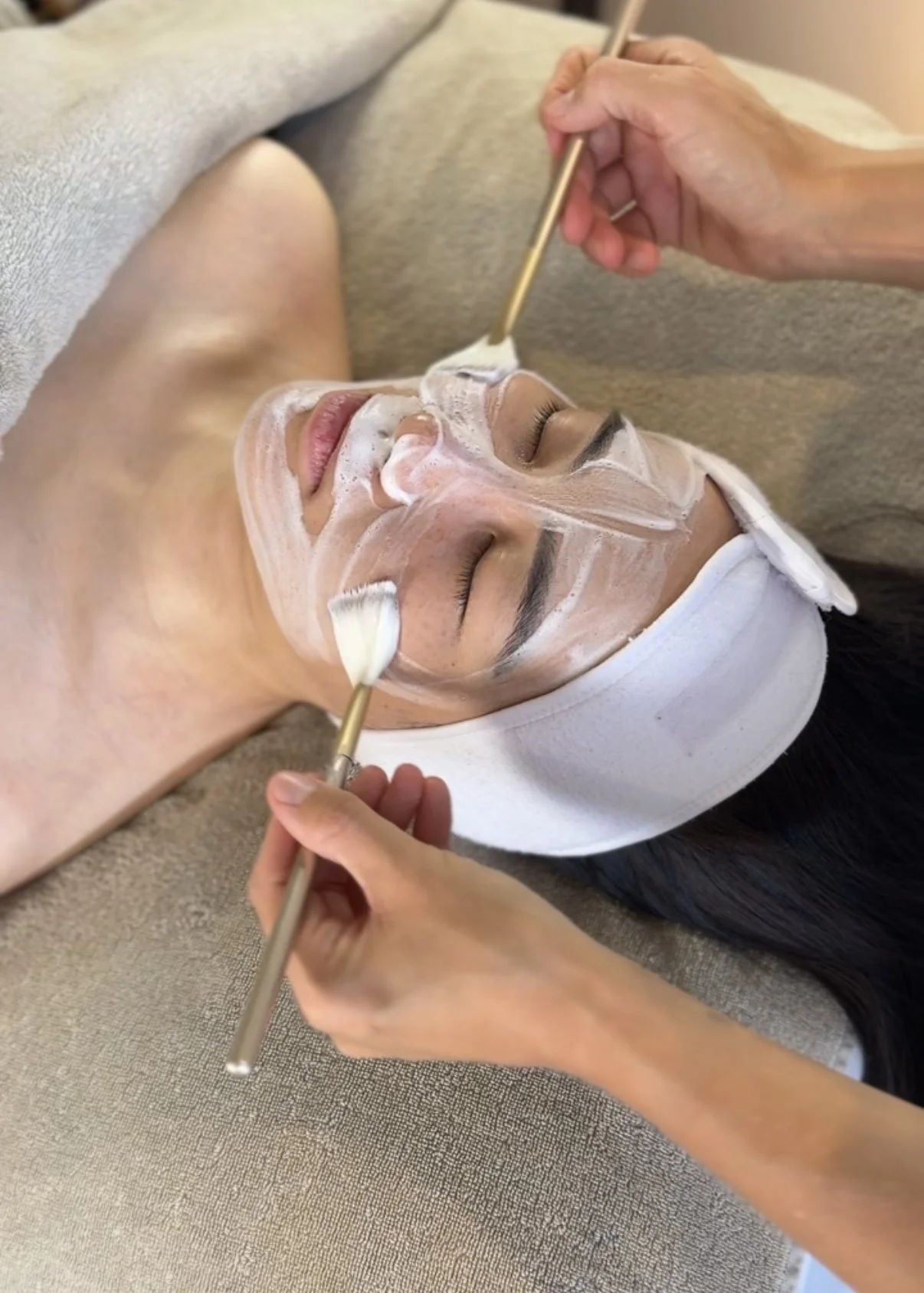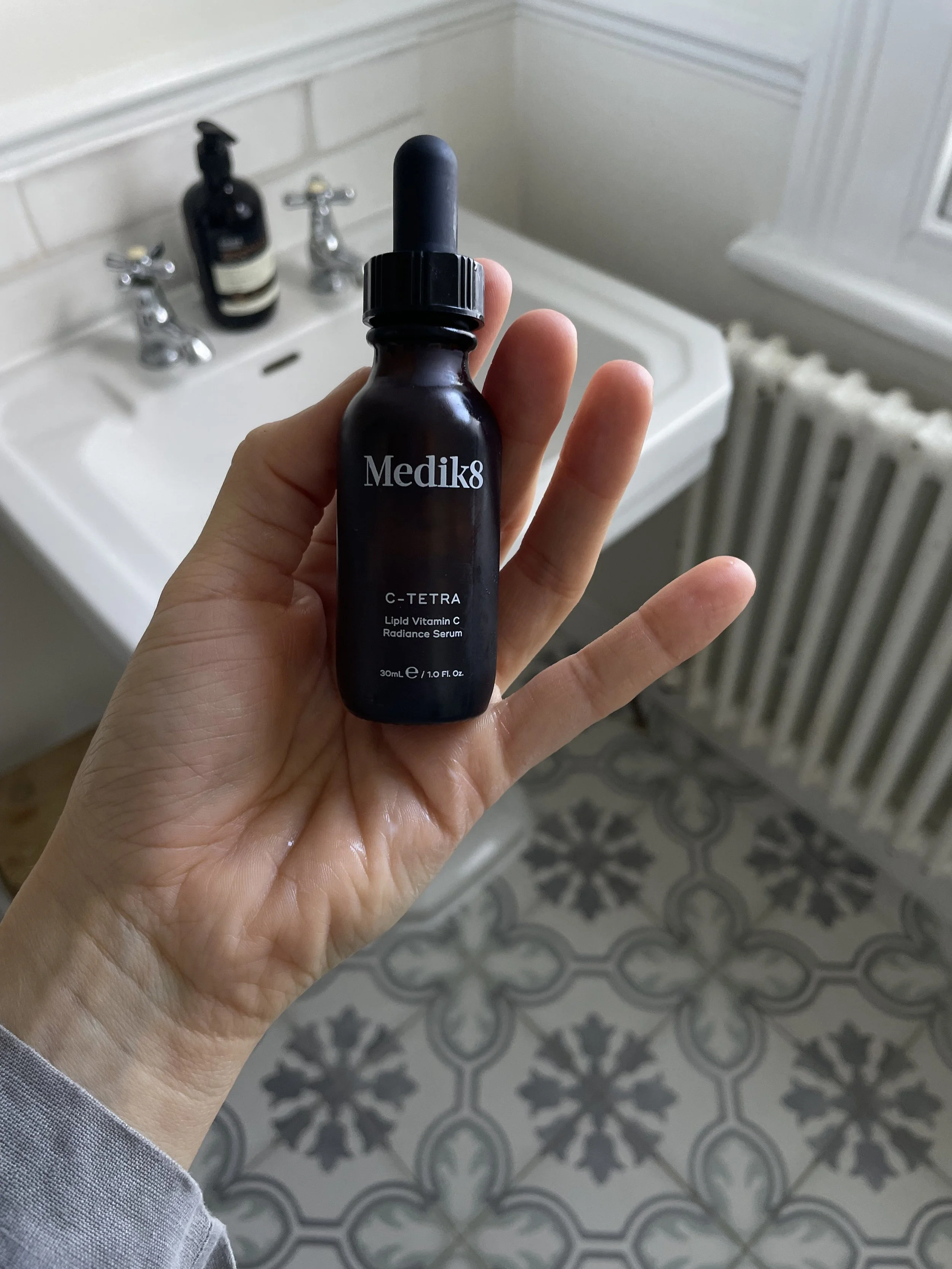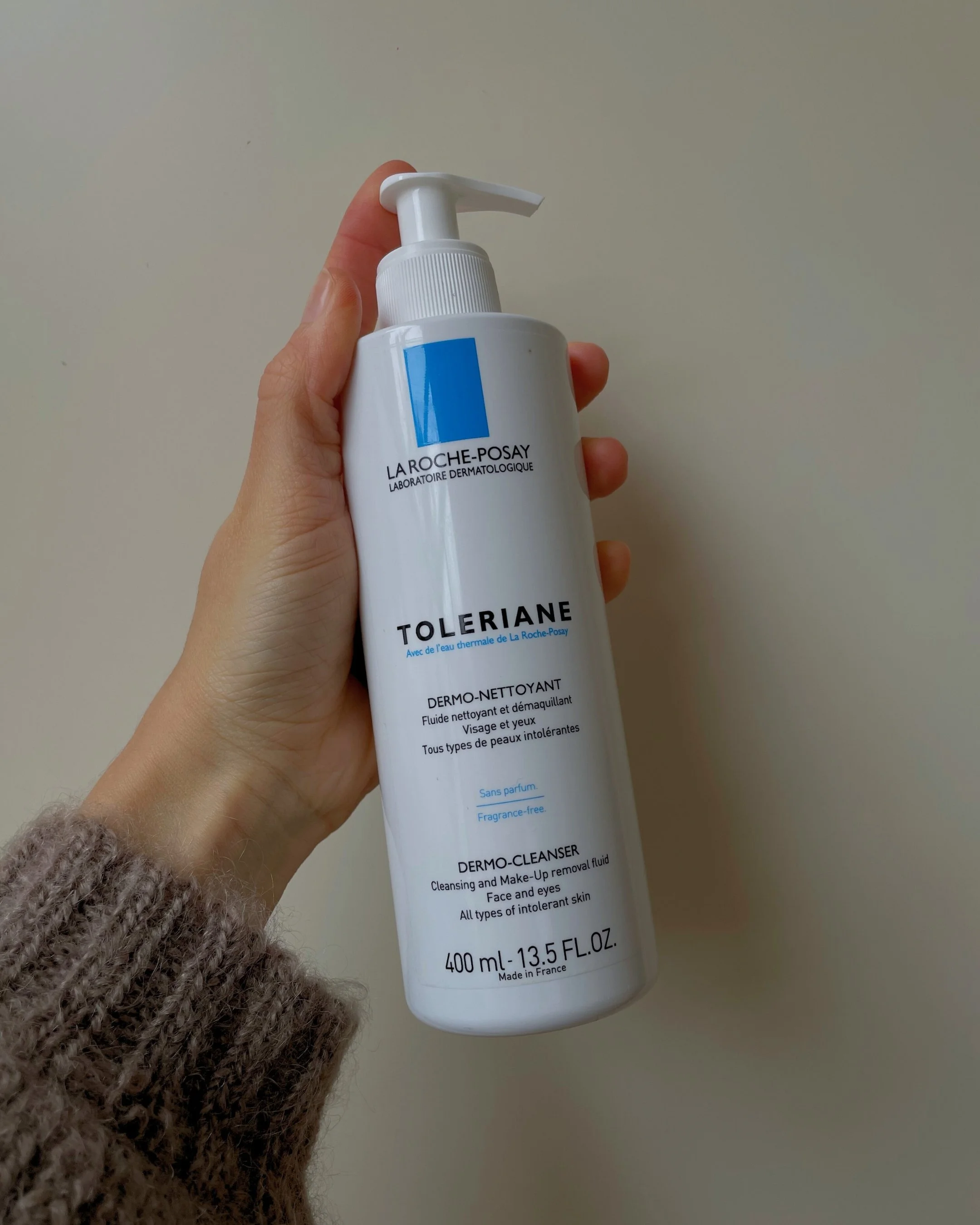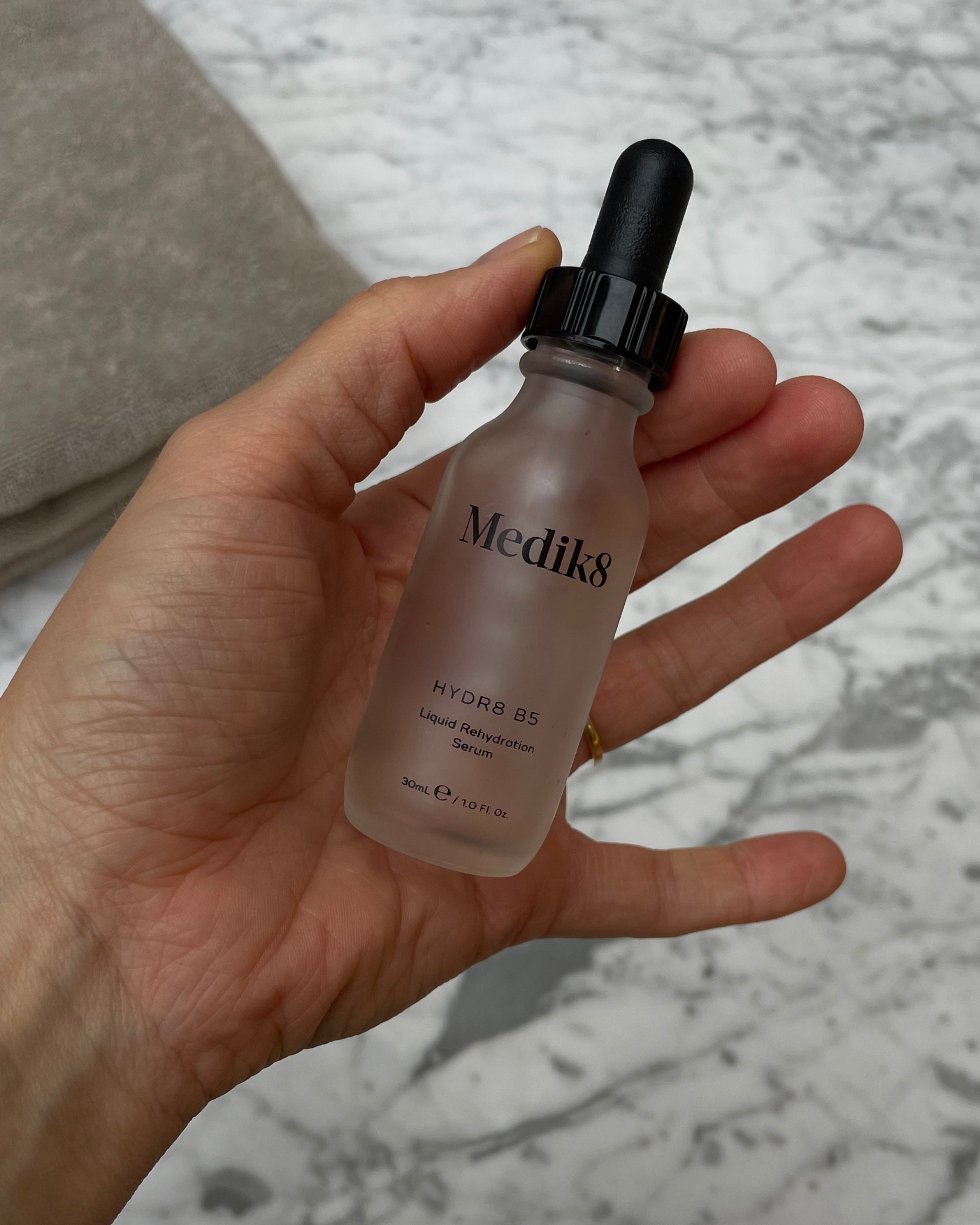Graceful #009 - Cortisol Face; Is stress Ageing our Skin?
Stress vs Skin
There’s a Roald Dahl quote often shared on social media: “If you have good thoughts, they will shine out of your face like sunbeams and you will always look lovely.” It captures something we instinctively know — that the way we feel on the inside so often shows up on the outside.
When we’re happy, relaxed and at ease; often on holiday, our skin glows for this reason. When we’re stressed, run down, or stretched too thin, our skin can be the first to give us away.
It might be a deadline or something more primal, but your body switches into the same stress response. Your nervous system releases a flood of stress hormones, including adrenaline and cortisol, for emergency action if ‘danger’ is on the horizon.
Cortisol in particular, is a bit of a troublemaker, and plays a crucial role in regulating inflammation, metabolism, and our internal rhythm. Stress and cortisol become very helpful to get us alert and ready to run for our lives in the instance of a tiger, not so much at the thought of your overflowing inbox every morning; but such is our modern life.
The reason our face has such an uncanny knack of being able to tell the world exactly how we’re feeling, comes down to the fact that the brain and the skin are formed from the same layer of cells, so in theory, they share the same emotional responses – especially when it comes to managing nerves.
Stress isn’t all bad though; a short-lived burst of stress can sometimes bring a healthy flush (exercise) or even kickstart repair in the skin (think microneedling). But when cortisol remains elevated for too long, things in regards to our skin (not to mention the whole body) can get trickier to navigate.
So, what does cortisol do to the skin?
In the short term, it overstimulates oil glands (hello breakouts), weakens the barrier (causing redness, sensitivity, dehydration), and leads to puffiness from retained fluid. Long-term, it chips away at collagen and elastin, the scaffolding (we talk about this alot) that keeps skin firm and smooth, speeding up fine lines, and loss of firmness. Elevated stress hormones slow lymphatic drainage all over, you may see fluid retention in the limbs or lose sight of your cheekbones.
So if your arsenal of eye creams and jade rollers aren’t offering a fix, the culprit might run deeper than your skincare routine. It’s a condition I certainly wasn’t taught in skin school — but one TikTok can’t stop talking about. ‘Cortisol face’ might just be your canary in the coal mine: a visible manifestation of internal stress.
A 2021 Harvard study described it beautifully: stress and skin are in constant dialogue. Stress triggers cortisol, which disrupts the skin barrier, worsening certain conditions like acne or eczema. In turn, the inflamed skin sends distress signals back to the brain, further cementing the stress response—trapping us in a cycle.
I know this firsthand. After my second child, I developed psoriasis. Yes, hormones and probably diet played a role, but so did the uncertainty of a mid-pandemic pregnancy and the pace of life with a young child whilst working. It taught me that treating ‘stressed skin’ isn’t just about finding the right cream. It’s about looking after the nervous system, reducing inflammation where we can, and rebuilding balance from the inside out with our daily practices.
What Can We Do About It?
The good news is there are small changes that can help. I often suggest daily affirmations as a great starting point alongside skincare or including them in your morning routine to set the tone for the day. Given cortisol worsens skin conditions, I truly believe it’s plausible that the reverse be true and positive thinking and increasing hormones like oxytocin could help to relieve stress and help to heal the skin. It may sound simple, but a small study has shown positive statements can lower stress and even boost skin hydration. It’s a reminder that what we feed our minds matters just as much as what we feed our skin. Of course this is a tiny piece of the puzzle, amongst so many other things we need to consider.
Beyond the bathroom shelf, lifestyle really does the heavy lifting. Addressing ‘cortisol face’ or stressed skin is 30% skincare and 70% lifestyle.
My Cortisol Toolkit:
Manage your environment. Simple, but create a positive, calming environment in your home space, or at the very least where you sleep. Scents, sound, colour all make a difference. I like using ‘This Works Sleep Spray’ at home before bed, and in clinic to signal it’s time to wind down.
Self-dialogue. Think or talk about what you’re thankful for, some people like journaling, affirmations - make time to remind yourself of the positives. Intelligent change have lovely affirmation cards to put on your desk or kitchen counter. I've just got some for my 5 year old, as part of our morning routine so we can pull a card together.
Get more sleep. We all know this one, and it’s not controllable in every stage of life. But look to get as close to eight hours a night to allow skin the time to repair itself. Magnesium can support this, along with consistent bedtimes.
Remove negativity. Be mindful of things in your life that are emotionally draining, and invest in relationships that light you up. Cortisol hates to see oxytocin coming.
Stay hydrated. Drink at least 2 litres of fluid a day to reduce the effects of dehydration on the skin, and support lymphatic drainage. Extra hydration from electrolytes can be helpful if it helps consume more, or you’re doing lots of movement.
Movement. Consider gentle facial massage with your hands or a tool to improve circulation, lymphatic drainage and boost collagen production in the face – it’s also a great method of relaxation. The same goes with the rest of the body; movement is so important. Walking in nature, like a park, has also been shown to reduce cortisol output compared to exercising indoors. Gentle activities such as yoga, pilates, deep breathing via an app, and swimming are all amazing at lowering cortisol levels.
Don’t forget your diet. The connection between the gut, brain and skin are so important when it comes to how we feel, and how we manage our stress. The natural balance of the gut can be impacted by lifestyle and stress too, so take some time to consider if your diet is working well for you.
Your Skincare Reset
When skin is reactive, less is always more. Put strong actives like retinoids or glycolic acids on pause, and focus instead on rebuilding. Think ceramides, hyaluronic acid, fatty acids, and gentle textures that calm rather than challenge.
For stressed skin, a restorative morning routine might look like this:
A fragrance and essential oil free oil cleanser
A mild cream cleanser
A calming or hydrating serum
A pH-balanced moisturiser, with ceramides to seal in hydration
Broad-spectrum SPF (especially since UV amplifies inflammation)
Layer in soothing ingredients Centella Asiatica (Cica), with hydrating serums with hyaluronic acid. For inflammation niacinamide is great, and antioxidants like vitamin C shield against environmental stressors like pollution. For a custom routine, I’m always happy to help.
When we care for both our skin and our nervous system, we create the conditions for radiance to return. As Dahl said, good thoughts really do shine out of the face—but so does deep, intentional care. Yet another reason why I feel so passionate about giving, and receiving treatments.
From My Desk This Week:
One product I’m loving: I’ve been really enjoying the Medik8 Daily Moisture Cream. Not only does it deeply hydrate and feel beautiful on the skin, but the refill system makes it more cost-effective and cuts down on packaging waste. It’s not a perfect sustainability solution, but it’s definitely a step in the right direction. I’ve also just been sent their new cream formulated with NAD+, which I’m really excited to try. NAD is often called the “youth molecule” because it plays a key role in cellular energy and repair. In skincare, it can help support skin barrier function, improve texture, and boost overall radiance. I’ll let you know how it goes once I’ve given it a proper test run!
What I’m reading/listening to: Now that the kids are back at school and our routine feels a little steadier, I’ve had more time for podcasts again. I really enjoyed an episode of Finally Found on sleep and hormones, and another on stress, anxiety and burnout that offered such practical advice. I also enjoyed a conversation with Hal Elrod, author of The Miracle Morning, where he shared how setting intentions and very specific routines each morning can shape everything in your life; from family life to health and career.
In the media: While researching this post I came across a Vogue Business article called Are We Heading for a Beauty Burnout? It explores how exhausting beauty maintenance can feel, but what I found most interesting was the link it made between beauty, culture, and politics. It suggests that while many of us are feeling burnt out it’s unlikely we’ll slow down our consumption of beauty, wellness, and now more than ever plastic surgery. Beauty has become so entangled with wider societal pressures that even in moments of fatigue, the expectation to keep up doesn’t disappear which I find fascinating. Favourite sentence: ‘The average beauty routine expands in direct proportion to political upheaval. Call it the Aesthetic Index.’
PS: Are people actually doing the morning shed - I thought it was purely performative?
Small shift to try this week: I’ve been talking a lot about small shifts lately (see my latest reel) and how they can help us feel calmer and more positive in a world that often feels heavy and full of pressure to do and be more. One shift I constantly underestimate is just going to bed earlier. I’ve always considered myself a night owl, my Oura, however, insists my chronotype is a morning type; go figure. Last week, I was solo parenting, I stayed up late a few nights watching The Summer I Turned Pretty (jury’s still out for me), and wow—the difference a few lost hours of sleep made to my mood and patience was stark. This week I’m on night three of a 9pm bedtime to claw back from feeling horrendous, and it’s reminded me just how much better I feel when I prioritise sleep. Sometimes the simplest shifts really do have the biggest impact.
As always, I hope this helps us all navigate some popularised topics around ageing with intention and ease. I’d love to hear your questions or any topics you’d like me to break down in future newsletters, just reply to this email.
With grace,
Charlie x
PS: Please forward this email on to anyone you think might find it insightful. They can sign up here, and read past issues here.







